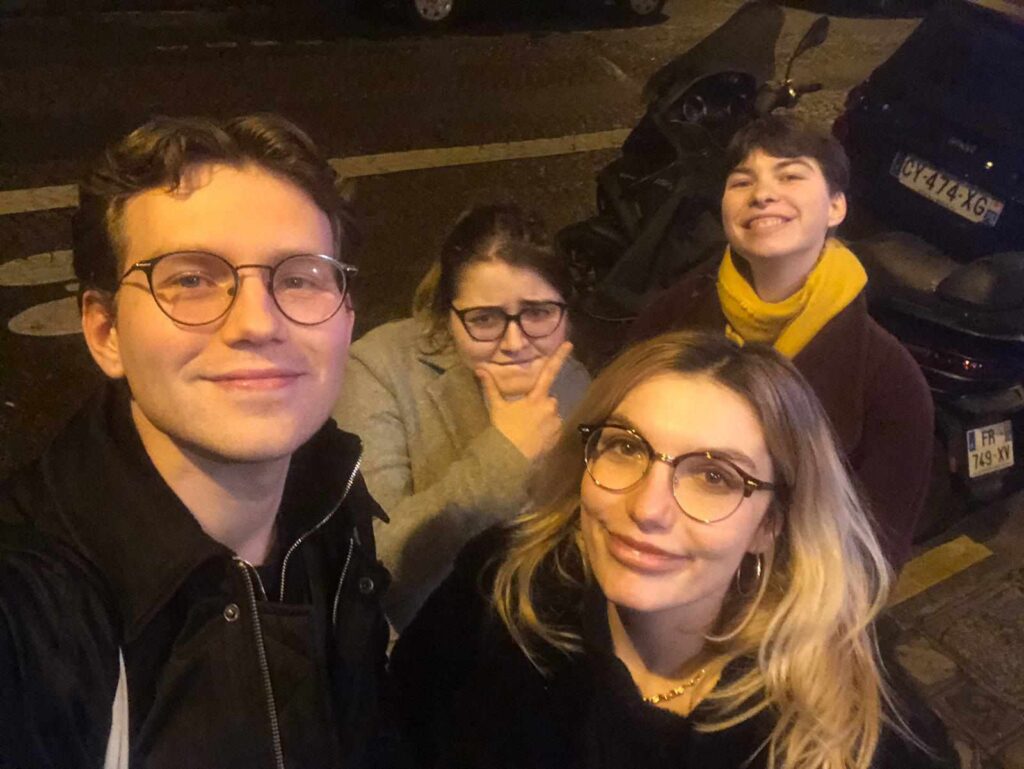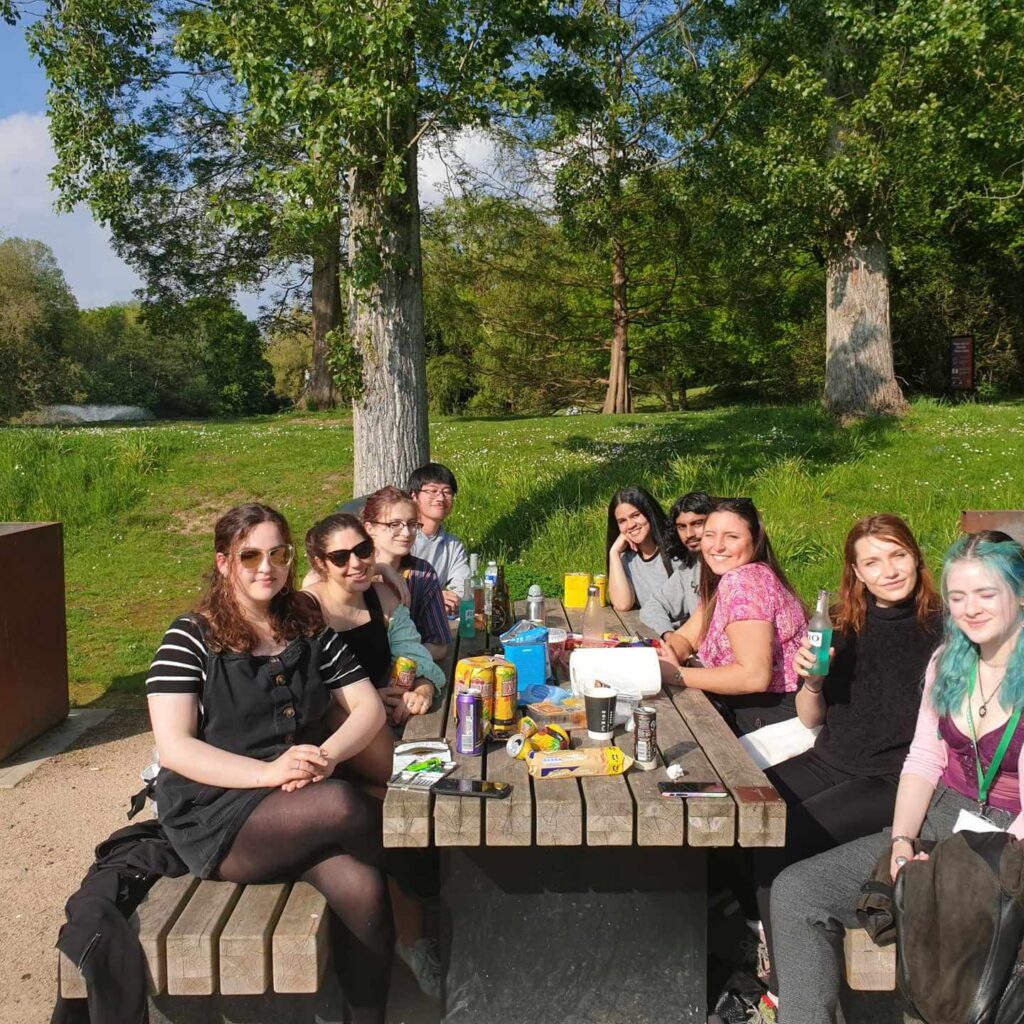
Today, my former boarding school roommate asked me why I was packing my bags and going to Bucharest, Romania, for two months. “That’s so random!” she said in her voice message, betraying the curiosity in her voice and a tinge of concern. After all, she’s the one who always wanted to leave our home country to move to America following an exciting school trip to New York. It seemed like I would only go as far as London.
It was tough for me to answer her question in one go. I kept deleting my audio message and starting over again until it dawned on me: I just wasn’t happy anymore.
My university years had been filled to the brim with inspiring social events. These chance encounters became lifelong friends, enriching lectures about Chinese politics, debates about the true meaning of social justice before the group headed to our campus nightclub, and a general sense of fulfillment. Money wasn’t a concern; I spent it unwisely back then. Time wasn’t a concern either, and I could juggle many activities along with my degree.

Once I stepped out of this environment, the fun stopped as soon as it started. Although I remember realizing that I wouldn’t like to stay an extra year, I just wanted the same social life I used to have; it didn’t prevent me from falling into lethargy.
I didn’t find what I wanted in nearly all of my most recent jobs. I had to deal with the fear of getting fired if I didn’t do exactly as I was told, regardless of how unimportant a task was, and the realization that I was not that important to my team and was just a tool to some of my bosses, the lack of time and resources to do what I want, and an irredeemable sense of loneliness, as I lived in a house with noisy flatmates who didn’t mind leaving the kitchen in an absolute mess and brought randoms home at 3 a.m. every day, and my friends lived in entirely different parts of London.
It felt like my existence didn’t matter and that all the dreams I had for myself in university were suddenly crushed by the realization that I was only a social elite back in the days when I was in uni or when I created the Essex Irish Society, to promote Irish culture in the UK.

Coming to terms with the fact that I wasn’t a rich and evil mastermind like Blair Waldorf in Gossip Girl nearly altered my whole personality: I stopped standing up to my bosses who overworked me with long and extravagant demands, I didn’t make any efforts to socialize anymore and just ghosted all the friends I had. I just accepted remote marketing jobs that don’t demand intellect and are as lonely as possible, and I just stopped dreaming.
That’s until I realized that I couldn’t give up just like that. Not when I had the internet at the tip of my hand and could undertake any course I wanted, talk to any possible mentor I could dream of through LinkedIn, and apply to any job I saw fit. Through talking to all my friends who were finding happiness after graduation, especially the ones who weren’t doing anything groundbreaking but found their crowd, I realized that I had to take responsibility for my own happiness. And that’s why I realized what I needed to be happy after graduating and find my path in life. Here are the lessons I’ve jotted down so far:
1. Figure out what you’re good at.

I realized far too late that there are jobs that will pay me to write all day. Journalism won’t be taken over by AI any day soon, and there is a demand for news and content that I would be happy to deliver.
By realizing what you are good at, you can narrow things down to what you would like to do every day and what environment you would like to do it in. For instance, one of my friends who studied law told me that she didn’t mind law, was good at noticing the fine print, and wanted a job that would not take up all her time and have children in the future. That’s how she decided to work as a paralegal in a big company with many other paralegals.
Another friend of mine just wanted to be rich, do something related to finance, and save the planet, so he decided to work in an investment firm to support eco-friendly projects.
2. Find small, tangible goals to help you feel a sense of achievement.
One of the reasons people become depressed after graduating, in my opinion, is because they no longer feel like they’re accomplishing anything and that they peaked in university. To avoid this, set yourself some weekly or monthly goals. Mine are writing articles for The Up and Coming Magazine, helping the charity I work for, Nurture The Children International UK, to gain more sponsors and donors, cleaning my room, traveling at least once a year, and doing a journalism internship.
3. Re-explore topics you used to like.

One of my biggest career mistakes so far was stopping my work at the Essex Irish Society because I wanted to move out of Essex. The society was enjoyable, drew in many members, and was lucrative – I also happened to be my boss.
The person who took over my role ended up ruining all of that by not respecting the tone of voice of the society, not putting in the work, and not being inclusive of non-Irish members. After that, I stopped trying to be involved in Irish culture, which was a real pity until I decided to re-explore my interest and was asked to contribute to Art Frontiere and discuss the heritage of Irish art. Working on this article makes me feel like I’m myself again. If you used to love playing video games at university and then stopped after starting work, why not try out a new game? Re-connecting with old interests can be exceptionally comforting in a season of uncertainty.
4. Create a new social circle.
After graduating, one of the main things that made me feel unhappy was how superficial my friendships were in London. Not having enough in common with the people I met made me question what was even the point of trying. This is why I decided to temporarily move around Europe, as I knew I needed something different from the social challenge London represented. Nobody stands out in London, and I needed to make myself feel special again by moving away for a while and meeting more people.
5. Ask your friends how they are coping.

Nothing makes someone more interesting than sincere care about their friends’ lives. The added benefit of asking questions like “Hey, how have you been feeling since you graduated?” or “Do you genuinely like your job?” is that it either provides an opportunity to commiserate and not feel so lonely or an opportunity to learn. One of my good friends has been living her best life since she graduated. Her life has never been as enjoyable. She’s moved in with her partner in Turkey, released her graduating thesis as a book, is attending many events, meeting people from every corner of the world, and teaches languages to make the minimum amount to enjoy her twenties as she pleases.
6. Ditch the anxiety-inducing habits.
Some of you will be upset at this one, but you need to stop downing coffee like there is no tomorrow. Caffeine is anxiety-inducing. I know that very well because I developed anxiety attacks last year, and if I stop coffee for a few days, they don’t happen half as frequently.
Maturing into your own happiness requires effort for some more than others. “Maybe you need to ditch your office job and become a yoga instructor?” My friend Francine asked, realizing that much of my stress is due to spending hours on my computer and phone for work. Unfortunately, I am not flexible at all. Francine still had a point: Screens are also anxiety-inducing, and yet we spend hours in front of them.
Many of us are unhappy with our post-graduation jobs because we are not creating anything worth being proud of. Many of us wanted to have comfortable office jobs without realizing that we would have nothing to show for once we left this job. This is why computers may also bring an added layer of anxiety to our routines: Because we aren’t doing anything to change the world through them.
7. Take a longer lunch break.

Contrary to popular belief, as a Gen Z, I over-exert myself at work and realized I was even working on the weekends to avoid disappointing my employer. In that process, I disrespected myself because my jobs were not dependent on me. They could fire me at any moment, for any reason, and take advantage of the fact that I work remotely to pile on more tasks on me as if on-site employees didn’t take tons of breaks. There is no reason for me to drive myself insane for a job that doesn’t care about me, for people who will nitpick at anything and everything without seeing how good 95% of my work is. I have started believing in myself, and I need to set boundaries.
For instance, I let my employer know last week that I worked overtime on a task because the allocated time for that task did not reflect its difficulty, how much research I had to pour into it, and that I experienced a lot of stress that particular weekend.
Honestly, my biggest realization this year was how unhappy I was and how I could easily fix this. You don’t need to be happy immediately after graduation, but it is your job to find out how to become happy after graduation. I recommend noting what you want to do and comparing yourself to your friends. Not in a judgmental or competitive way, but as a way to learn what they do to keep themselves busy and happy and what could work for you.
This was written by our contributing writer, Suzanne Latre.
Leave a Reply